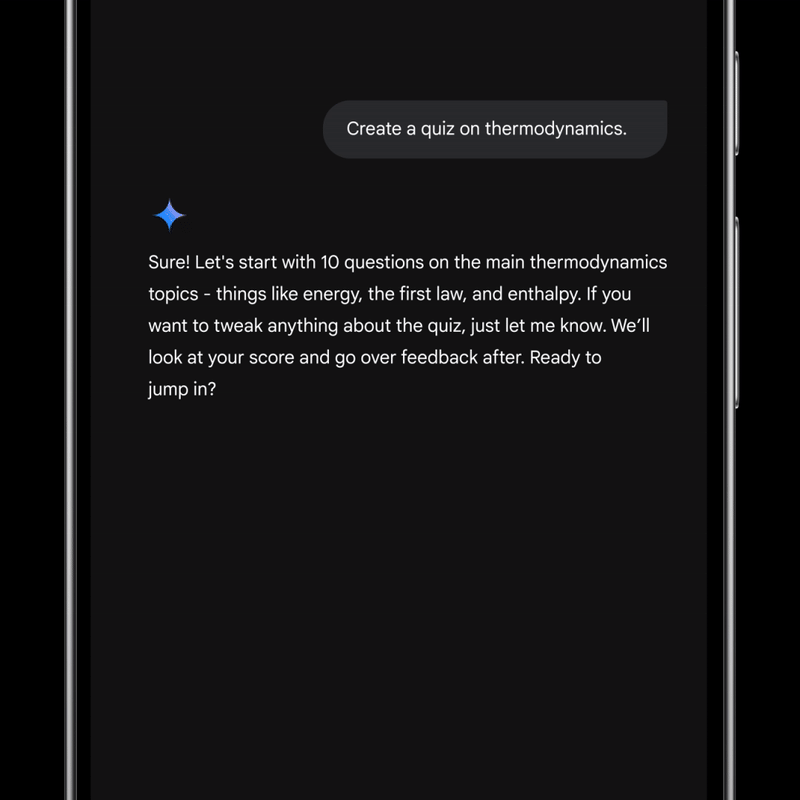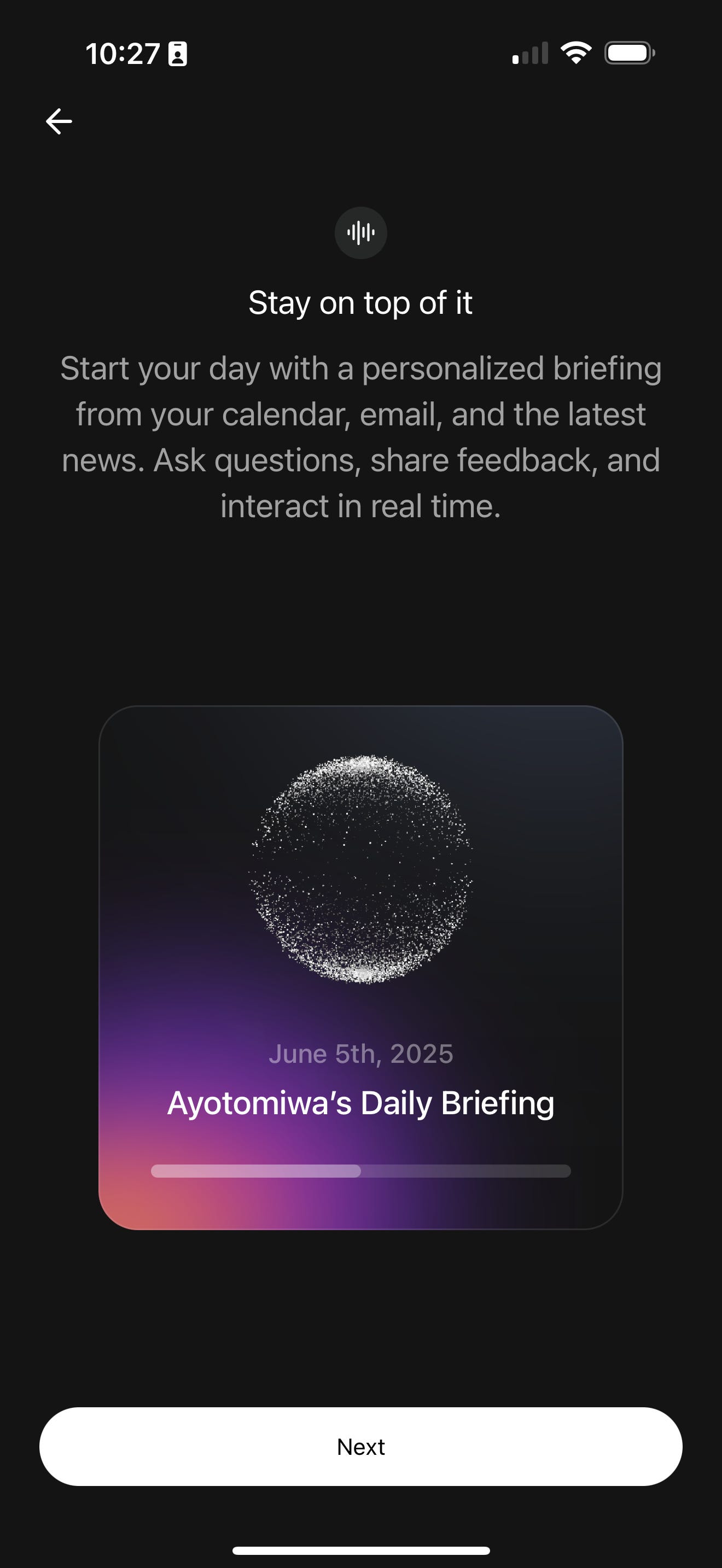[3 tools] Beyond democratization to demonstrations
Why the best AI in education needs to meet students where they are
I have come across and helped build some innovative applications of technology in learning and this felt like a perfect time to take stock of a few launches from the past month.
The common thread I am observing is that the rate of building with AI is surpassing the rate of adoption, especially among students. I remember showing students a pdf only prototype and getting them to use any free ppt to pdf converter to add their class slides was such a hiccup.
This suggests that building great tools is not enough. Even democratizing them to be widely accessible is also not enough. If we care about the real impact, we must also invest in meeting students where they are at, demonstrating how users overcome inertia, confusion, or lack of context.
Now on to the first tool.
Gemini Quizzes
My team launched a feature in Gemini that generates practice quizzes that are personalized and grounded on the user’s content. It is available globally both on the web and mobile apps. You can read the full announcement here.
I am incredibly proud of this work because it represents a critical application of AI to an underutilized but impactful lever of pedagogy – retrieval practice.
In ‘Why Technology is Revolutionizing Education’ I explain how Optical Character Recognition technology transformed Education positively by enabling teachers to grade multiple choice questions faster and therefore test students more often.
Research shows significant learning benefits when we recall information during testing. Notably, this approach is incredibly effective once you have at least consumed the content once. This was such a consequential learning that I have since convinced my sister to change from her ways of re-reading the page till she understood to instead moving on the teacher’s practice questions ASAP.
The issue with retrieval is simple and well known. Many studious students run out of practice questions to keep testing themselves. And it is really difficult and time consuming for diligent students to create their own. To make matters worse, in my secondary school there were some teachers who deliberately did not give practice questions (they didn’t know about the power of retrieval for learning.)
Fast forward nearly a century since the adoption of OCR, and we have another technology, AI, which enables much more testing, not only limited to multiple choice formats, and not only for teachers’ uses.
Gemini quizzes are available to students to get their reps in, while also providing feedback at every step, an opportunity to follow up, as well as a summary of the strengths and weaknesses of their performance.
While Gemini helps students by saving time and effort in the studying process, other tools are integrating directly into their daily routines. A subset of the team behind NotebookLM, have broken away to start something new that they are soft launching after months of development.
Huxe AI
Every now and then, we experience a product that feels simultaneously alien as well as strikingly familiar. When ChatGPT launched, it was a magical moment because the chat interface that was familiar to tech savvy folks cloaked a powerful and strange intelligence.
Trying out Huxe AI also felt magical. If I forced myself to compare it to familiar experiences, it semed like some cross between podcasts, newsletters, and AI personalization more broadly. But really it feels like an original way of digesting and learning content.
After onboarding, which involves mainly connecting your calendar/mail and specifying 5 topics of interest, the default experience is the daily briefing. The two hosts recap your inbox and day ahead calling out possibly urgent or actionable items. They then transition to current events relevant to your topics of interest.
I must say all of this is really delightful to listen to. It is similar to the NotebookLM audio overviews, but it is much more personalized. You can even skip topics or dive deeper. Moreover, the integration with other apps like calendar and mail is very promising.
One of the biggest limits to widespread application of Generative AI technology is providing the right context at the right time – similar to the challenge students had uploading ppt vs pdfs.
However, I question any audio output first experience. It’s one thing to listen to a generated podcast every once in a while about a specific thing such as a research paper but quite different to work Huxe into my daily life if its so audio first.
Guess we’ll see how this app morphs into an experience that meets people where they are whether on their commute or in a noisy coffee shop. Download the app here but join the discord to get an access code here.
Anthropic Edu
Another notable announcement in the past month in Edtech came from Anthropic who have been investing more in empowering students. With Claude for Education, the company is rolling out a student ambassador program, API credits for student builders, as well as Learning Mode. Read more here.
Learning Mode encourages critical thinking by guiding with questions rather than giving answers, emphasizing core concepts, and using Socratic questioning, while also offering practical tools like templates for structured learning.
While it is awesome that Claude applies more pedagogical principles, it is not so awesome that it only does so in Projects which is only available to paying Pro consumers. Access to these innovative learning experiences remains a challenge across the ecosystem today, of course with exceptions.
Nevertheless, Claude also announced a 4-hour AI fluency course that is rooted in 4 D’s: Delegation, Description, Discernment, and Diligence. And folks have actually been raving about it.
While I haven’t taken the course, these are the displays of leadership we should see in this era as AI transforms, learning, building, and living in our society.
That’s it for our recap of tools this week. I am planning a couple of series of posts around some themes I have been reading, listening, and thinking about.
For now, as we build these tools, let us consider how to better meet learners exactly where they are at whether its with flexible file uploads, providing alternatives to audio, or simply ensuring experiences for students are accessible to all.



